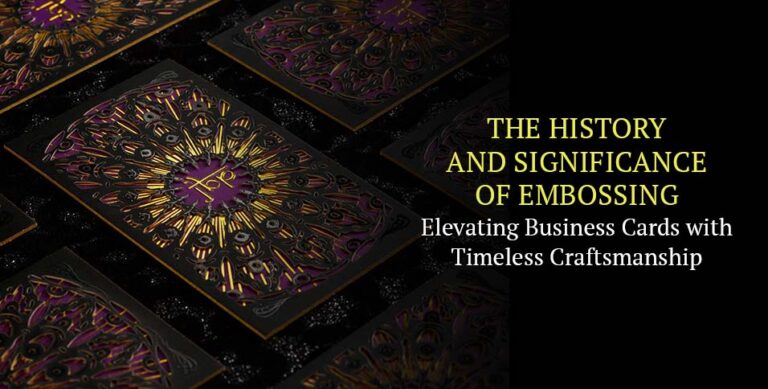Robin Williams wasn’t just an entertainer—he was a phenomenon. He made us laugh, cry, and rethink life itself. But beyond the stage and screen, he was also a sharp businessman. At his peak, Robin Williams net worth soared to $130 million, but let’s be honest—Williams was more than just millions. He was priceless.
From charging millions of dollars per movie to making strategic investments, Williams knew how to turn his success into long-term wealth. He owned breathtaking properties, made bold stock choices, and even negotiated paychecks that proved his worth.
But numbers only tell half the story. His real fortune was in the fans he had/have and the love he received from his fans cannot be counted in $$$. And as a fan, I know you’ll will agree that he gave us immense joy, wisdom, and unforgettable moments.
So, how did he do it? Let’s break down the financial genius behind the man who gave us so much more than money ever could.
Let’s analyze the diverse income sources that defines Robin Williams net worth of $50 million
| Source | Financial Highlights |
| Movie Earnings | Made $10M–$20M per film, turning smart contracts into massive paydays. |
| Stand-Up & TV | Started at $35K per episode in the ’70s, later earning $165K per episode. |
| Voice Acting | Took just $75K for Aladdin, despite the film grossing $500M+. |
| Real Estate | Owned estates worth $6M–$35M, some later selling for half their value. |
| Stock Investments | Secured 150K+ shares in Audible before its public boom. |
| Stock Options | Bought shares at just $0.91–$1.25, proving his sharp financial instincts. |
Paychecks from Movies
Robin Williams wasn’t just an actor—he was a part of our lives. Whether it was his heartfelt wisdom in Good Will Hunting or his wild energy in Jumanji, he made us feel something real. And Hollywood knew it—his paychecks proved it.
Movie Earnings
- $20M for Bicentennial Man (1999) – his biggest payday, showing how much studios valued him.
- $15M for Jumanji – a film we still rewatch, proving his lasting appeal.
- $10M each for Patch Adams and Flubber – because only Robin could make us laugh and cry in the same scene.
- $20M per film in 1997 – at his peak, he was among Hollywood’s highest-paid stars.
- $5M for Good Will Hunting, but his profit-sharing deal was genius. When the movie made $225M on a $10M budget.
Box Office Success
- His films raked in hundreds of millions, showing just how much audiences adored him.
- He had that rare gift—blending comedy and depth, making us laugh one moment and tear up the next.
With such massive earnings, Robin Williams net worth reflected his legendary career. But beyond the numbers, his impact was priceless. He didn’t just act—he connected with us, making his legacy one that will never fade.
Stand-up comedy and TV Appearances
Robin Williams didn’t just perform—he electrified every room he walked into. Whether it was a packed comedy club or our living rooms through TV screens, he had that rare magic that made us feel like he was speaking just to us.
Stand-up & Live Comedy
- Took the 1970s comedy scene by storm, leaving audiences breathless with his rapid-fire wit.
- “A Night at the Met” wasn’t just a comedy album—it won a Grammy, proving his brilliance wasn’t limited to visuals.
- His stand-up gigs at top venues weren’t just performances; they were masterclasses in improvisation, cementing his legacy as one of the greatest to ever hold a mic.
TV Earnings & Success
- $35K per episode for Mork & Mindy (which adjusts to $130K today).
- By 2013, his TV stardom soared, earning $165K per episode for The Crazy Ones.
- His quick wit and improvisation made him irreplaceable, proving that no script could ever match his natural genius.
With every joke, every character, and every moment of unscripted brilliance, Robin Williams’ net worth reflected his impact. But let’s be real—his true wealth wasn’t in dollars. It was in the joy he gave us.
Voice Acting
Robin Williams didn’t just act—he became his characters. His voice work wasn’t just about lending a few lines; it was about bringing a soul to animation. And no performance proved that more than his unforgettable role as Genie in Aladdin (1992).
Voice Acting Earnings
- Earned just $75K for Aladdin – not because he wasn’t worth more, but because he wanted to be part of something magical.
- Refused to let Disney exploit his voice for merchandising—but they did anyway.
- Came back for Aladdin and the King of Thieves with a well-deserved, much bigger paycheck.
Cultural and Financial Impact
- Aladdin grossed over $500M, proving that a powerful voice could be just as valuable as an on-screen performance.
- His energetic, improvisational style revolutionized voice acting, setting a new gold standard for animated films.
While Robin Williams net worth was built on blockbuster films, his voice work was priceless. He gave us laughter, heart, and a Genie we’ll never forget. Because when he spoke—we listened.
Real Estate and Assets
Robin Williams didn’t just leave behind iconic performances—he left a footprint in some of the most coveted real estate in the world. His properties weren’t just homes; they were reflections of his success, taste, and vision for the future.
Luxury Properties
- Tiburon, California – A breathtaking waterfront home, valued at $6M, offering serene bay views and ultimate privacy.
- Napa Valley Estate – A stunning vineyard retreat, originally listed for $35M in 2013 but later sold for $18.1M in 2016. The perfect blend of luxury and nature.
- San Francisco’s Sea Cliff Mansion – One of the city’s most prestigious addresses, listed for $25M in 2023—a true symbol of timeless elegance.
A Carefully Protected Legacy
- Williams wasn’t just thinking about wealth—he was thinking about control. He restricted the use of his name, image, and voice for 25 years after his passing.
- No films, ads, or endorsements can exploit his identity until 2039, ensuring his legacy remains his own.
Robin Williams’ net worth wasn’t just about money—it was about influence, foresight, and protecting what truly mattered. Even beyond Hollywood, he remained a mastermind of his own story.
Robin Williams’ Investment in Audible Inc.
Robin Williams wasn’t just a Hollywood legend—he was a savvy investor too. While we knew him for his unforgettable performances, behind the scenes, he made financial moves that showed he wasn’t just thinking about the next role—he was thinking ahead.
Stock Holdings & Warrants
- 150,000 shares in Audible Inc. when it went public on July 15—long before audiobooks became mainstream.
- Warrants for an additional 900,000 shares, proving he saw value where most wouldn’t.
Stock Options & Vesting
- 25,000 shares at $1.25 per share—a strategic buy with a staggered vesting schedule.
- 200,000 shares at $0.91 per share, vesting over 20 months until December 31, 2002—showing patience and long-term vision.
This wasn’t just an investment; it was a calculated move. Williams wasn’t just securing his future—he was betting on an industry that would explode years later. Robin Williams net worth wasn’t built on acting alone; it was shaped by smart financial decisions that proved his genius extended far beyond the screen.
Key Takeaways
Robin Williams wasn’t just a comedic genius—he was a financial mastermind who ensured his success extended far beyond Hollywood. His $50 million net worth wasn’t just about earnings; it was the result of strategic foresight, adaptability, and financial control. Unlike many stars who let their wealth fluctuate, Williams made intentional moves to protect, sustain, and maximize his fortune.
- Mastering Strategic Earnings – Williams didn’t rely solely on upfront paychecks. His profit-sharing deal in Good Will Hunting turned $5M into a multi-million-dollar windfall, proving the power of structured financial planning.
- Seeing the Future Before Others – He invested in Audible Inc. before audiobooks became mainstream, showing his ability to predict industry shifts. This wasn’t just an investment—it was a calculated move toward long-term wealth.
- Controlling His Legacy – Unlike most celebrities, Williams restricted the use of his image and voice for 25 years after his passing, setting a new standard in digital rights protection.
- Leveraging Real Estate for Wealth Stability – His properties weren’t just homes—they were long-term financial assets. While stocks fluctuate, premium real estate retains value, reinforcing why tangible assets are crucial in wealth-building.
- Building a Financially Sustainable Legacy – Williams didn’t just earn and spend—he diversified his income streams, ensuring his fortune remained intact. His approach offers a blueprint for both creatives and entrepreneurs looking to secure their financial future.
Robin Williams’ net worth of $50 million wasn’t just about the money he made—it was about the smart financial decisions that kept his wealth intact. His story proves that true success isn’t about short-term gains but about building and protecting a lasting financial legacy.
















